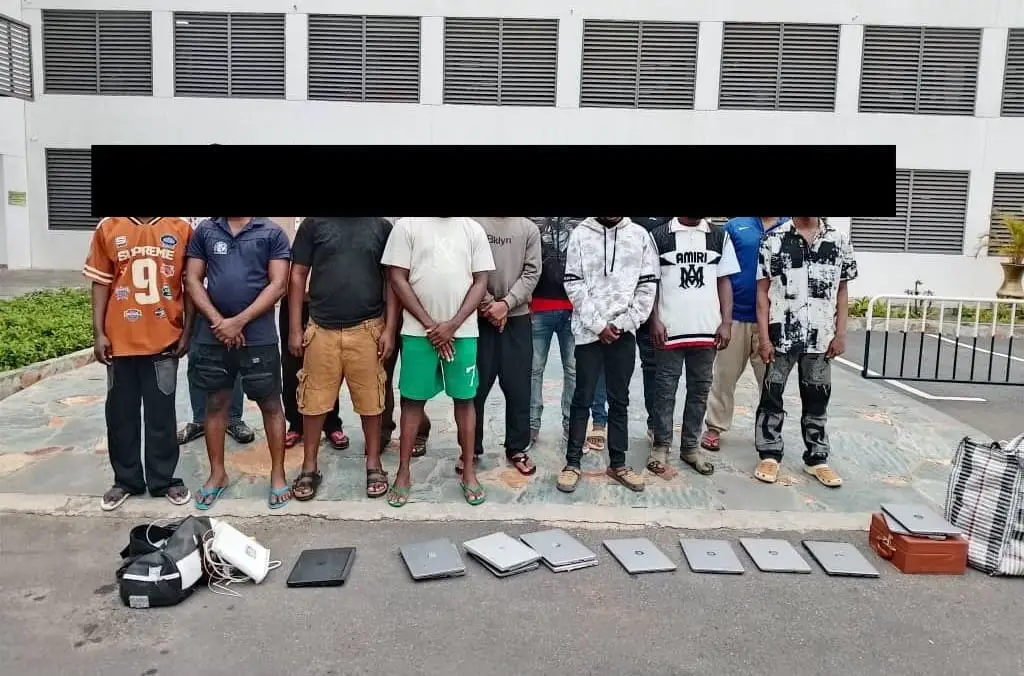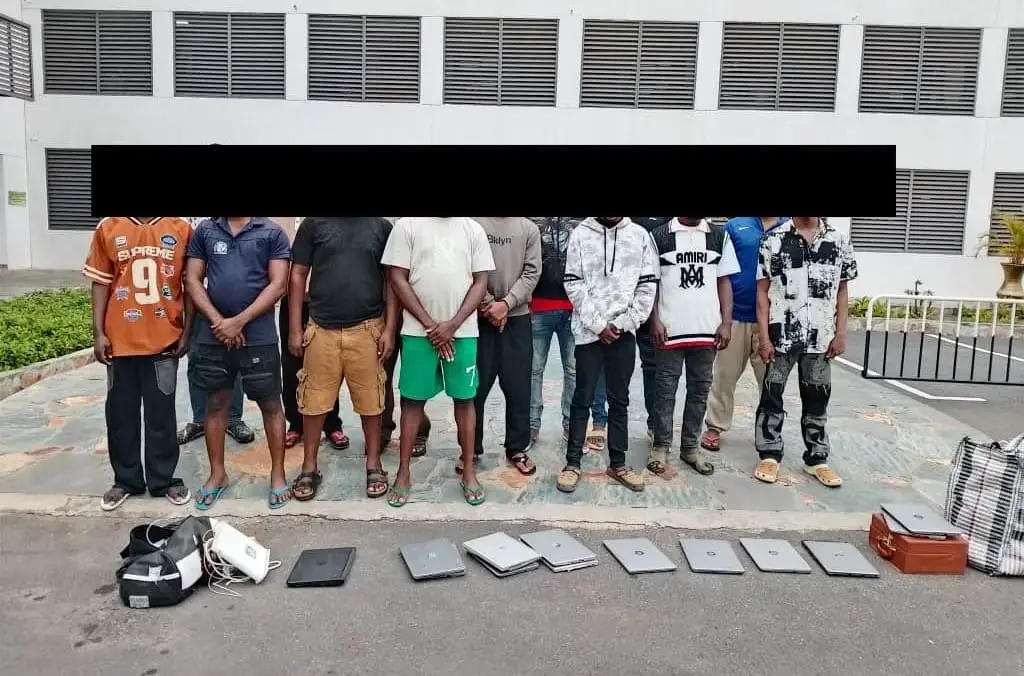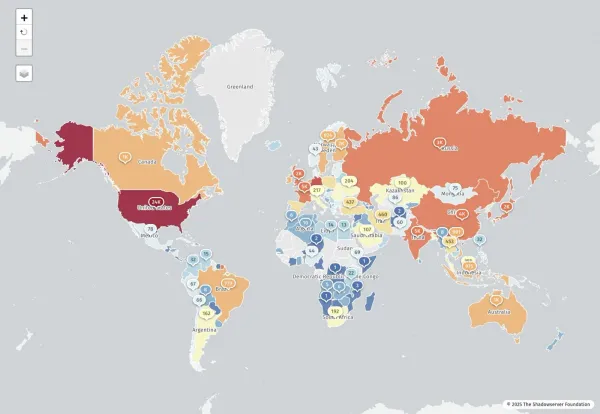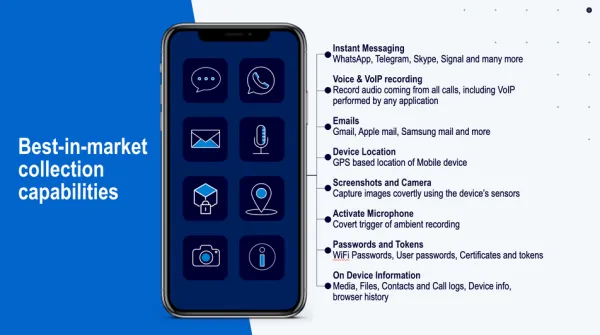Operation Contender 3.0: Interpol Dismantles Romance Scam Networks Across Africa

260 arrested, $2.8 million in losses uncovered as law enforcement targets the emotional manipulation economy
In a coordinated two-week crackdown spanning 14 African nations, Interpol has arrested 260 suspected cybercriminals and dismantled 81 criminal infrastructures in what marks the latest phase of an intensifying battle against digitally-enabled fraud on the continent. The operation comes amid a broader surge in cyber threats across Africa, where attacks increased by 39% year-over-year in 2025.
Operation Contender 3.0, conducted between July 28 and August 11, 2025, specifically targeted two of cybercrime's most psychologically damaging schemes: romance scams and sextortion. The operation resulted in the seizure of 1,235 electronic devices, identification of 1,463 victims, and the recovery of evidence linking these networks to nearly $2.8 million in financial losses.Operation Contender 3.0: Interpol Dismantles Romance Scam Networks Across Africa




The Anatomy of Digital Heartbreak
Unlike typical cybercrime operations that rely on technical exploits or malware, Operation Contender 3.0 exposed criminal networks that weaponize human emotion itself. These aren't hackers breaking into systems—they're social engineers breaking into hearts.
The romance scam operations uncovered during the raids followed a disturbingly systematic approach. Criminals created elaborate fake profiles using stolen photographs and forged identification documents, then cultivated relationships with victims on social media and dating platforms. Once trust was established, the financial exploitation began through various pretexts: fake courier fees, customs charges for "gifts," emergency medical expenses, or business opportunities.
In sextortion cases, the methodology was even more invasive. Criminals would engage victims in intimate video conversations, secretly recording the interactions. The explicit material was then weaponized through blackmail, with threats to share the content publicly unless the victim paid.
"Cybercriminals behind romance scams and sextortion deliberately exploit some of the deepest human vulnerabilities, such as trust and emotional attachment," said Dmitry Volkov, CEO of Group-IB, one of the private sector partners involved in the operation. "They manipulate victims by taking advantage of their feelings and personal relationships, turning genuine emotions into tools of deception and coercion."
The Operational Landscape
The operation revealed significant geographical concentration of these criminal enterprises, with Ghana emerging as a major hub. Ghanaian authorities arrested 68 individuals—more than a quarter of all suspects—and seized 835 electronic devices. Investigators identified 108 victims in Ghana alone, with financial losses totaling $450,000, of which $70,000 was recovered.
The scale of Ghana's involvement tells a broader story about how romance scam operations have industrialized in certain regions. The seized devices paint a vivid picture: tables covered with dozens of smartphones, each with different cases, each likely used to maintain separate fake identities and conversations with multiple victims simultaneously.
In Senegal, authorities arrested 22 suspects who had taken the fraud to another level by impersonating celebrities. This network used the perceived credibility of fame to manipulate 120 victims on social media and dating platforms, extracting approximately $34,000. Police seized 65 devices along with forged identification documents and money transfer records that documented the financial flows.
Côte d'Ivoire's operation dismantled what may have been the most prolific sextortion ring uncovered during the sweep. Authorities arrested 24 suspects and identified a staggering 809 victims who had been manipulated into sharing intimate images, then blackmailed when the criminals threatened public exposure.
Angola's investigation revealed the international dimension of these operations, with authorities arresting 8 individuals who had targeted 28 domestic and international victims primarily through social media. The suspects used fraudulent documents to create fake identities, facilitating financial transactions while concealing their real identities.
Technical Infrastructure and Enforcement Methods
Operation Contender 3.0 succeeded because it targeted not just the criminals but the entire ecosystem enabling their operations. During the raids, police identified and mapped IP addresses, digital infrastructures, domains, and social media profiles linked to the scam syndicates.
The seized evidence tells the story of sophisticated operations: USB drives containing victim databases, multiple SIM cards for maintaining separate identities, forged documents for creating fake personas, and detailed records of financial transactions. The takedown of 81 cybercrime infrastructures across Africa means these networks can't simply relocate and resume operations—their technical foundation has been dismantled.
The operation benefited from enhanced data sharing between law enforcement and private sector cybersecurity firms. Group-IB and Trend Micro provided threat intelligence that allowed investigators to identify high-value targets before executing coordinated enforcement actions across multiple countries simultaneously.
The Third Wave
Operation Contender 3.0 represents the third phase of Interpol's targeted enforcement against romance scam and sextortion networks in Africa, following operations in 2021 and the Contender 2.0 operation in 2024. Each iteration has built on intelligence gathered from previous operations, creating an increasingly detailed map of how these criminal networks operate, recruit, and move money.
This operation also ran concurrent with the much larger Operation Serengeti 2.0, which arrested 1,209 alleged cybercriminals across Africa between June and August 2025 for a broader range of cybercrimes including ransomware, business email compromise, and investment scams. Together, these operations represent an unprecedented level of coordinated law enforcement action across the continent.
Cyril Gout, Interpol's Acting Executive Director of Police Services, emphasized the escalating nature of the threat: "Cybercrime units across Africa are reporting a sharp rise in digital-enabled crimes such as sextortion and romance scams. The growth of online platforms has opened new opportunities for criminal networks to exploit victims, causing both financial loss and psychological harm."
Why Africa Has Become a Hub
The concentration of these operations in Africa isn't coincidental. According to Interpol's 2025 Africa Cyberthreat Assessment Report released in June, two-thirds of surveyed African member countries reported that cyber-related offenses make up a medium-to-high proportion of all crimes.
Several factors have created an environment where these operations can flourish:
Infrastructure Growth Without Governance: Many African nations have experienced rapid expansion of internet connectivity and mobile phone penetration, but cybersecurity frameworks, law enforcement capacity, and international cooperation mechanisms have lagged behind this growth. This mirrors the broader challenges facing African cybersecurity, where nearly 90% of agencies report limited cross-border cooperation capacities.
Cross-Border Complexity: Romance scam and sextortion networks typically operate across multiple jurisdictions, with criminals in one country targeting victims in another while moving money through a third. This jurisdictional complexity has historically made prosecution difficult.
English Language Advantage: Many African countries have large English-speaking populations, making it easier for scammers to communicate convincingly with victims in Western countries where most targets are located.
Economic Pressure: High unemployment rates and limited economic opportunities in some regions have created a population vulnerable to recruitment by criminal networks that can offer relatively lucrative returns for social engineering skills.
The Human Cost Beyond Finance
While the $2.8 million in identified financial losses is significant, the true cost of romance scams and sextortion extends far beyond monetary damage. These crimes inflict profound psychological trauma on victims who have been manipulated into trusting someone, sharing intimate details of their lives, and in many sextortion cases, sharing explicit content.
Victims of romance scams often experience not just financial devastation but emotional trauma from the betrayal of trust, shame at having been deceived, and reluctance to report the crime due to embarrassment. Sextortion victims face the additional terror of potential public exposure and the violation of having their most intimate moments weaponized against them. These scams are part of a broader epidemic of romance-related fraud in 2025, with cryptocurrency romance scams alone generating an estimated $9.9 billion globally in 2024.
The psychological manipulation involved in these schemes is sophisticated and deliberate. Criminals study their targets, adapt their approaches based on emotional vulnerabilities, and sometimes spend weeks or months building trust before the exploitation begins. This isn't opportunistic fraud—it's calculated psychological warfare designed to maximize both financial extraction and victim compliance through fear and shame.
International Funding and Cooperation
Operation Contender 3.0 was funded by the United Kingdom's Foreign, Commonwealth and Development Office under the African Joint Operation against Cybercrime project. This funding model represents recognition that cybercrime in Africa isn't just an African problem—it's a global issue requiring international resources and cooperation.
The operation brought together law enforcement agencies from Angola, Benin, Burkina Faso, Côte d'Ivoire, Gambia, Ghana, Guinea, Kenya, Nigeria, Rwanda, Senegal, South Africa, Uganda, and Zambia. This level of coordination required extensive planning, intelligence sharing, and synchronized timing to prevent criminals from simply relocating when operations began in one country.
The involvement of private sector cybersecurity firms like Group-IB and Trend Micro added critical technical capabilities that many African law enforcement agencies lack. These companies provided threat intelligence, helped map criminal infrastructure, and offered expertise in tracking digital money flows—capabilities that were essential to identifying the networks before coordinated enforcement actions could begin. This public-private partnership model has proven effective in multiple Interpol operations throughout 2025.
What Happens Next
The 260 arrests represent a significant disruption, but they're unlikely to eliminate these types of crimes entirely. Romance scams and sextortion are attractive to criminals precisely because they're relatively low-risk compared to other forms of cybercrime, require minimal technical expertise, and can be conducted from anywhere with an internet connection.
However, the systematic approach of Operation Contender 3.0—targeting infrastructure, seizing devices, documenting networks, and coordinating arrests across multiple countries—makes it harder for these operations to simply reconstitute. The intelligence gathered during this operation will feed into future enforcement actions, creating a cycle where each operation becomes more effective.
For potential victims, awareness remains the most powerful defense. The warning signs of romance scams are well-documented: rapid declarations of affection from someone you've never met in person, requests for money for emergencies or business opportunities, reluctance to meet face-to-face despite prolonged communication, and inconsistencies in their story.
These tactics are similar to "pig butchering" scams—a $12.4 billion criminal enterprise that combines romance fraud with investment schemes. While pig butchering specifically involves cryptocurrency investments, the initial relationship-building phase uses identical psychological manipulation tactics to Operation Contender 3.0's romance scams.
For sextortion, the key is never sharing intimate images or engaging in explicit video conversations with someone you haven't verified in person, regardless of how long you've been communicating or how trustworthy they seem. Once that content exists, you've lost control of it.
Understanding the tactics used in romance and sextortion scams is crucial, as these schemes operate year-round and continue to evolve with new technology and psychological manipulation techniques.
A Growing Enforcement Network
Operation Contender 3.0 demonstrates that international law enforcement is adapting to the borderless nature of cybercrime. The days when criminals could operate with impunity by exploiting jurisdictional gaps are ending, replaced by an increasingly coordinated global response.
The operation is part of a broader pattern of unprecedented international cybercrime enforcement in 2025. Earlier in the year, Interpol also coordinated Operation Red Card (November 2024 to February 2025), which resulted in 306 arrests across seven African countries for mobile banking scams, fraudulent investment schemes, and messaging app scams.
As Interpol continues building capacity among African member countries through training, intelligence sharing, and joint operations, the risk calculation for criminals changes. The operation also sends a message to other regions where similar networks operate: the international community has the capability and commitment to pursue these cases across borders.
The challenge ahead is sustaining this momentum and expanding enforcement capacity faster than criminals can adapt. Romance scam and sextortion networks are resilient and opportunistic—they'll continue evolving their tactics, moving to new platforms, and adapting their approaches to evade detection.
But with each operation like Contender 3.0, law enforcement gets better at disrupting these networks, private sector partners develop more sophisticated detection capabilities, and potential victims become more aware of the tactics used against them. As part of 2025's unprecedented wave of law enforcement action against cybercrime, the fight against digital romance fraud is far from over, but the tools and international cooperation needed to combat it are steadily improving.
Operation Contender 3.0 Statistics:
- 260 suspects arrested
- 1,235 electronic devices seized
- 1,463 victims identified
- $2.8 million in estimated losses
- 81 cybercrime infrastructures dismantled
- 14 African countries participated
- July 28 - August 11, 2025: Operation timeframe
Participating Countries: Angola, Benin, Burkina Faso, Côte d'Ivoire, Gambia, Ghana, Guinea, Kenya, Nigeria, Rwanda, Senegal, South Africa, Uganda, and Zambia
Private Sector Partners: Group-IB, Trend Micro
Funding: United Kingdom Foreign, Commonwealth and Development Office (African Joint Operation against Cybercrime project)






